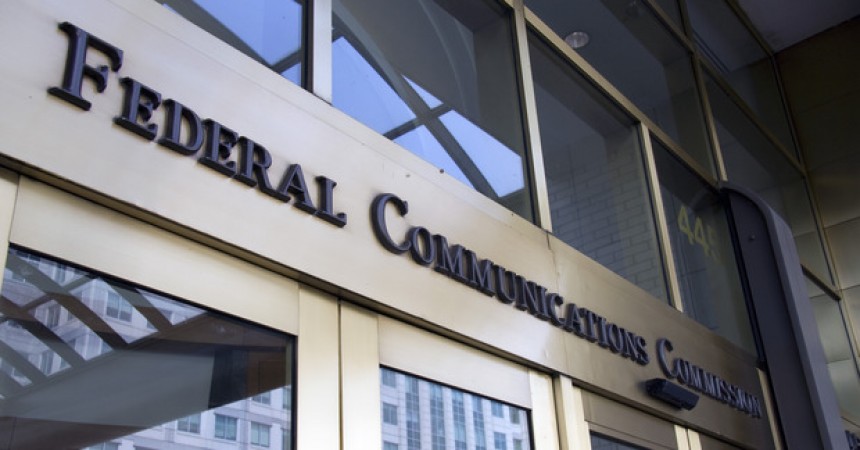-
Tips for becoming a good boxer - November 6, 2020
-
7 expert tips for making your hens night a memorable one - November 6, 2020
-
5 reasons to host your Christmas party on a cruise boat - November 6, 2020
-
What to do when you’re charged with a crime - November 6, 2020
-
Should you get one or multiple dogs? Here’s all you need to know - November 3, 2020
-
A Guide: How to Build Your Very Own Magic Mirror - February 14, 2019
-
Our Top Inspirational Baseball Stars - November 24, 2018
-
Five Tech Tools That Will Help You Turn Your Blog into a Business - November 24, 2018
-
How to Indulge on Vacation without Expanding Your Waist - November 9, 2018
-
5 Strategies for Businesses to Appeal to Today’s Increasingly Mobile-Crazed Customers - November 9, 2018
FCC defends broadband rules against court challenge by service providers
Friday’s oral arguments are scheduled to last more than two hours, and then the D.C. Circuit Court is expected to rule sometime in the spring.
Advertisement
“This regulatory overreach – which will slow innovation, chill investment, and increase cost on consumers – is completely unnecessary, given the fact that broadband providers are operating in conformance with the open Internet standards advanced by the president, support their adoption in regulation under the FCC’s Section 706 authority, and their enactment into law by the United States Congress”, McCormick said.
The U.S. Telecom Association, FCC and a host of interveners on the behalf of each argued about the FCC’s reclassification of mobile broadband as a common carrier, the process it used to get there, and whether that process unfairly and intentionally bypassed businesses with the right to comment on the changes.
A ruling could take several months.
At issue are the net neutrality rules set forth by the FCC earlier this year when it was successful in reclassifying broadband Internet service as a utility.
Judge David Tatel said a Supreme Court ruling from 2005 seems to give the FCC a choice to regulate broadband companies as common carriers or as information service providers.
The latest case deals with the FCC’s newest set of rules, approved in February.
Arguing in favour of the rules, FCC General Counsel Jonathan Sallet said they are a reasonable approach to serving the public interest of keeping Internet access open.
“The oral argument in the appeal of the Open Internet Order illustrated the magnitude of legal hurdles facing Chairman Tom Wheeler’s designation as Internet referee”, Berninger said in a statement to InsideSources.
Potential problem areas for net neutrality proponents include the FCC’s assertion of authority over interconnection disputes, the application of net neutrality rules to mobile networks, and questions about whether the FCC provided the public enough notice before enacting its rules.
Additionally, Judge Stephen Williams “seemed clearly to have an issue with the FCC’s ban on paid prioritization”, Multichannel News reported.
“We have said repeatedly that this appeal is not about preserving an open Internet; it is about the FCC’s unnecessary and unlawful action to reclassify broadband Internet service as a common carrier”.
Legal experts are divided about how the court may rule.
Quinalty said that federal telecommunications law hasn’t kept up with technological changes. The FCC did not extend the full weight of its rules to such arrangements, but did establish oversight on a case-by-case basis.
For several years, ISPs including Verizon, Comcast and AT&T have been fighting to strike down the FCC’s regulations on net neutrality – the principle that all Internet traffic should be treated equally.
Net neutrality, or the idea that corporations that provide us with Internet access can’t manipulate how we use it, is an obnoxious subject.
“The policy explanation is as we listened and we learned from the record”, he said, concluding in the end that “bright line rules were necessary”.
On mobile, the judges didn’t question the FCC’s view that services should be regulated the same way on both wired and wireless networks, Russell said.
Advertisement
Russell said he is optimistic in part because Judge Sri Srinivasan “asked the other side the question, why does it make sense for my carrier to throttle or block my access to a website when my iPad is connected to a wireless mobile network, but not when it is connected to Wi-Fi?” If judges go further and decide that the FCC’s legal justification was flawed, the commission would have to “go back to the drawing board with respect to mobile”, Russell said.





























